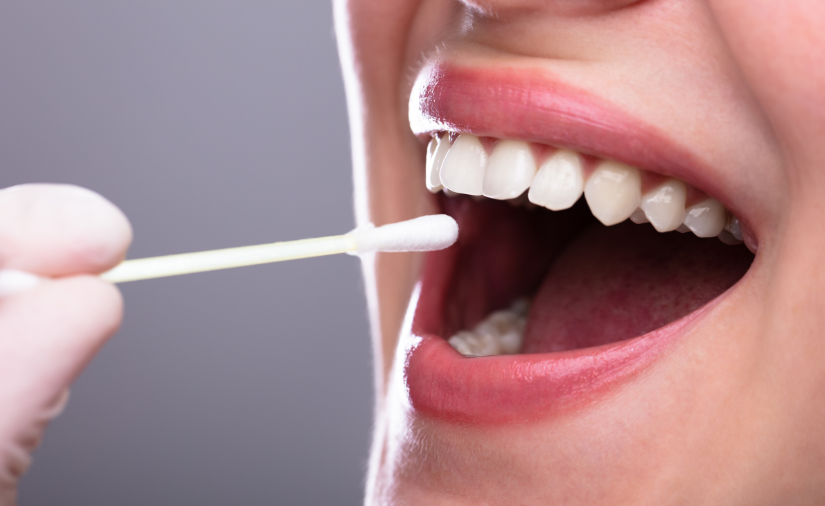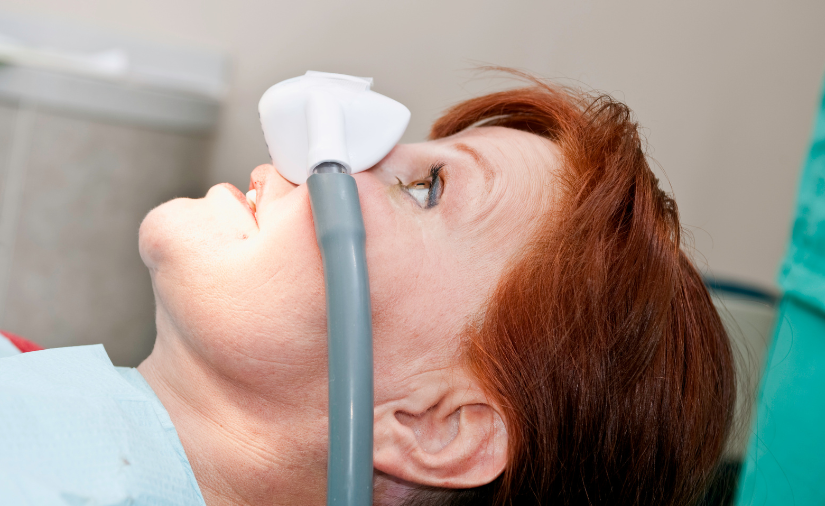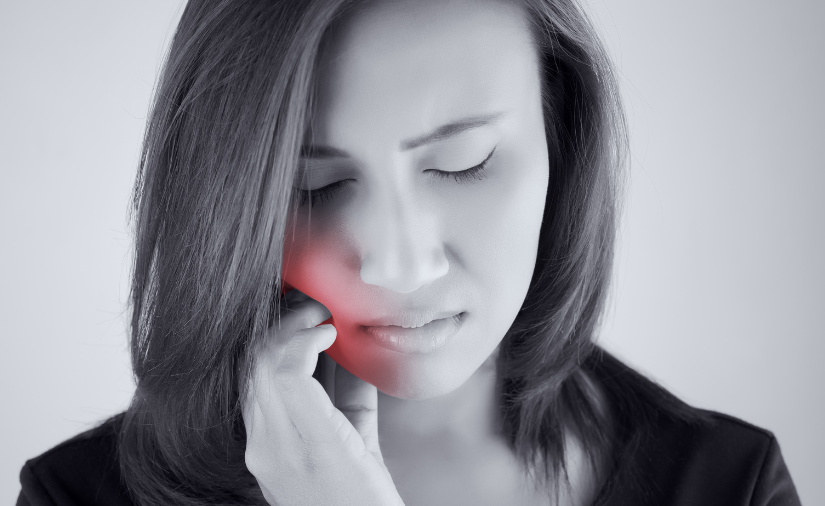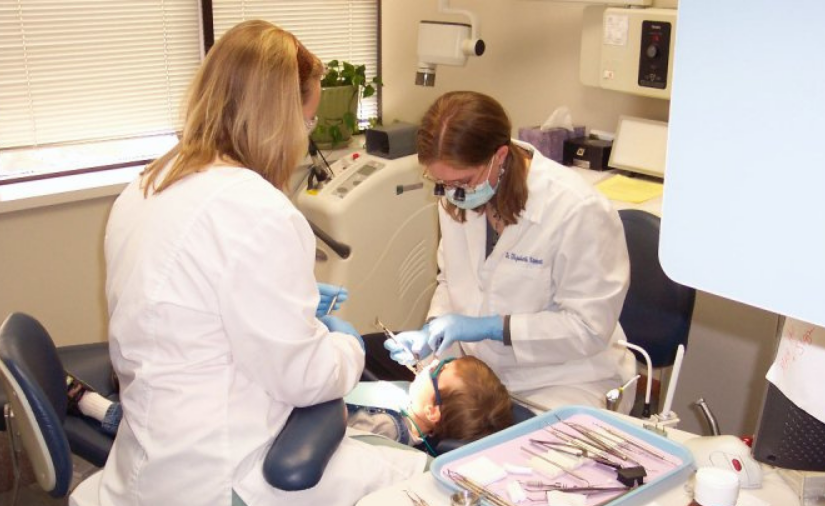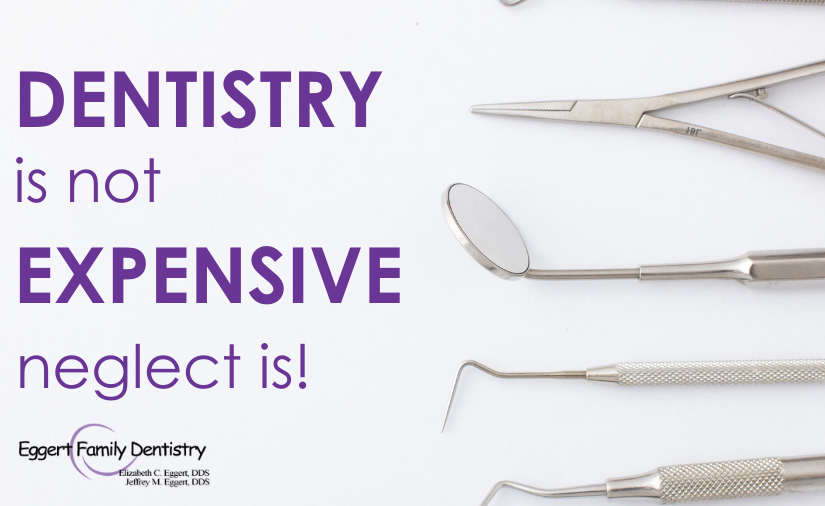By: Dr. Elizabeth Eggert
Swelling of your teeth or gums can be painful. It can make chewing and swallowing difficult, and in some cases the pain can be so severe that it disrupts your life. Tooth and gum swelling can also be signs of a potentially serious dental issue, and shouldn’t be ignored or left untreated.
The good news is that good oral care and regular exams by your dentists at Eggert Family Dentistry can help prevent tooth swelling and the various conditions that cause it.
Let’s take a closer look at the symptoms and causes of gum and tooth swelling, as well as the ways Dr. Jeff and Dr. Elizabeth can treat the underlying issues and get you back to feeling your best.
Symptoms of Tooth and Gum Swelling
Swelling and pain can often come on suddenly. Pain can range from mild to severe, and can be constant and throbbing or may come and go. With tooth or gum swelling, you might experience:
- Swelling around a single tooth or in larger areas inside your mouth
- Swelling of the jaw or face
- Painful chewing
- Bleeding gums
- Sensitivity to hot, cold, or sweet foods
- Pain in your head, ears, or jaw
In some cases, tooth pain and swelling can be accompanied by a fever or even trouble breathing or swallowing. If this happens, it’s important to receive care immediately.
Common Causes of Gum and Tooth Swelling
There are a wide range of underlying issues that can cause swelling of the teeth and gums. These include:
Tooth Abscess
Caused by a bacterial infection, a tooth abscess can present at the tip of the root (periapically) or on the side of the root (periodontally). You can also experience an abscess in your gums (gingival). An abscess in a tooth typically follows a cavity or dental injury of some kind, as cracks in the teeth provide a pathway for bacteria to enter. If you have a tooth abscess, you may experience:
- Throbbing toothache that may spread to your neck, ear, or jawbone
- Swollen lymph nodes
- Fever
- Sensitivity to heat and cold
- Face or neck swelling
- Painful biting or chewing
Always seek dental treatment from your professionals at Eggert Family Dentistry for an abscess. Even if it drains on its own, you should still visit us to make sure the infection hasn’t spread. We can help you treat the abscess by draining it and may prescribe antibiotics to treat the underlying infection. In some cases a tooth extraction or root canal may be necessary.
Irritation From Wisdom Teeth
As wisdom teeth come in, you may experience some swelling and pain. This can happen if wisdom teeth are impacted (trapped beneath your gums). It can also happen as they break through the gums, leaving spaces where bacteria can cause a gum infection and painful swelling. The solution in this case is typically removal of the wisdom teeth.
Gingivitis
Gingivitis is an early form of gum disease. It commonly causes swollen, red, and irritated gums that may bleed when you brush your teeth. Gingivitis can be addressed with improved oral care and avoiding sugary food and drinks, but you should also have your dentist do a thorough examination. They may recommend additional treatments.
Dental Injury
Dental injuries can also cause swollen teeth or gums. Dental trauma is a common occurrence that can happen to anyone. Some of the dental injuries we see often are:
- Lost crowns or fillings
- Damaged braces
- Broken or chipped teeth
- Partially dislodged or knocked-out teeth
Learn more about dental trauma in our recent blog, including ways to avoid it and what to do in an emergency.
Medications or Allergic Reaction
Some medications can have side effects that include tooth or gum swelling. If you think your swelling and pain could be caused by medication, check with your medical doctor to determine if that is a common side effect.
Some people may also react to certain ingredients in their toothpaste or mouthwash. If you notice irritation of your teeth or gums after brushing your teeth or using mouthwash, stop using it and switch to a different brand or type to see if it clears up. If not, consult with your dental professionals at Eggert Family Dentistry to determine if another issue could be the cause of the irritation.
In addition to the above, tooth or gum pain and swelling can also be caused by tooth decay, a loose filling, or various medical issues, including a vitamin C deficiency, sinus infection, mouth sores, or problems with the jaw.
What Is the Treatment for Tooth Swelling and Pain?
Swollen or painful gums or teeth can be a serious issue, and it’s important to treat it as such.
If you are experiencing any of the symptoms listed above, the first thing you should do is reach out to our office so Dr. Jeff and Dr. Elizabeth can determine your best course of action — especially if your symptoms last more than a couple of days.
We will ask a series of questions and do a thorough examination to determine the cause of your pain and swelling and can then recommend the best treatment. Questions will include information about your dental history and the details of the pain — when it started, what it feels like, what other symptoms you’re having, and so on. We will also take x-rays to determine the extent of the issue.
The treatment will depend on the root cause of your swelling. We may prescribe antibiotics or other medications to treat the pain and target any infection.
In addition, there are a few things you can do at home to care for yourself and minimize your pain. These include:
- Rinse or gargle with warm salt water to help rinse away any bacteria.
- Over-the-counter pain relievers like Advil or Tylenol can help reduce swelling and pain.
- Eat easy-to-chew foods and avoid very hot or very cold beverages.
- Lie with your head propped up on a pillow. Lying flat can make dental pain feel worse.
- Hold a cold compress against the side of your face to relieve pain and reduce swelling.
It’s important to note that while these things will provide some relief, they won’t solve the underlying issue causing your tooth or gum swelling. Visiting your dentists at Eggert Family Dentistry will still be necessary for a full recovery.
If you aren’t able to get in to see us right away, and your tooth pain and swelling is accompanied by a fever, facial swelling, or trouble breathing or swallowing, you should visit the emergency room for treatment.
Preventing Tooth and Gum Swelling
Luckily, most of the issues that cause tooth or gum swelling can be prevented with good oral care and regular exams with Dr. Elizabeth or Dr. Jeff here at Eggert Family Dentistry.
Excellent oral care includes brushing after meals with fluoride toothpaste and a soft toothbrush, and flossing daily with traditional dental floss or a water flosser. Eating a healthy diet and avoiding sugary foods and tobacco products will also help keep your teeth and gums healthy.
Keep Tooth and Gum Swelling at Bay by Scheduling Your Next Dental Appointment
Whether you are currently experiencing swelling or pain in your teeth or gums, or it’s simply time for your regular recare visit, take the time to schedule your next dental appointment now. To schedule an appointment with Dr. Elizabeth or Dr. Jeff, call our office at 651-482-8412.


